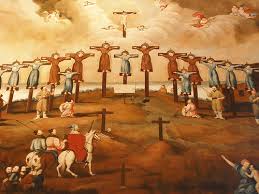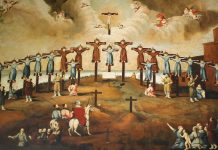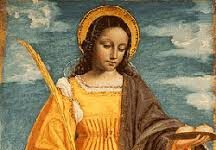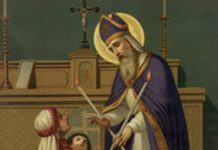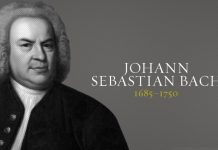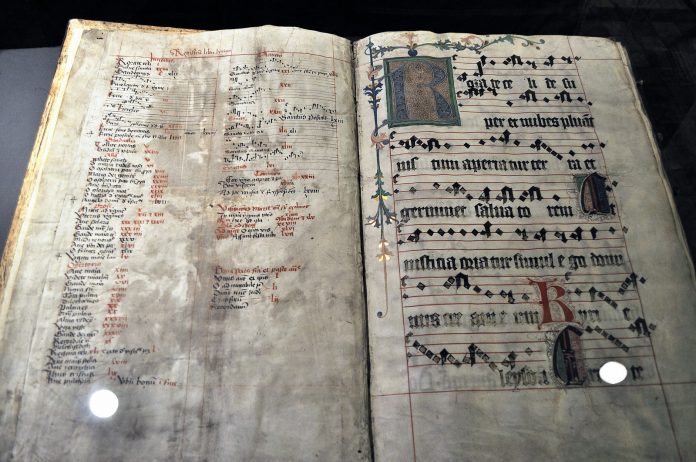
The Lord your God, is in your midst…He will renew you in His love (Zeph. 3:17). ⧾
The third Sunday of Advent is known as Gaudete Sunday. Gaudete is Latin for Rejoice, the first word of our Entrance Antiphon: Rejoice in the Lord always; again I say, rejoice. Indeed the Lord is near. Today we rejoice because Christmas is near and because God will renew us in His love (Zeph. 3:17). This is the spiritual grace that is offered to us through the liturgical and sacramental celebration of both Advent and Christmas. We have begun a new year of grace and as we celebrate the Liturgy of Advent, the ancient expectancy of the Messiah is made present. We will welcome Him into our hearts and He will renew them with His grace so that Christ may be formed in us (Gal. 4:19).
Once again, on this third Sunday of Advent, we encounter the figure of John the Baptist who last Sunday called us to repentance: ‘Prepare the way of the Lord, make his paths straight’ (Lk. 3:4). Today he exhorts us to bear the fruits of repentance. His instructions are quite ordinary: that people share, that they be fair with each other, and they not be mean and cruel; that they be happy with what they get. These are things that we teach our smallest children. Integrity in ordinary things is still a mark of true repentance. We sometimes think God requires us to do great or impossible things to demonstrate repentance, but constancy and integrity in ordinary things is the hallmark of a penitent heart and a virtuous life.
This constancy and integrity should also characterize our religious duties and obligations. For Catholics this means a regular sacramental life that includes regular recourse to the Sacrament of Penance or Confession. In heeding the call to repentance and faith in Christ Jesus Our Saviour, as we noted last Sunday, first and foremost we banish the illusion of moral self-sufficiency; an illusion that can literally prevent us from ever making any progress in the spiritual life. This is the illusion of radical autonomy so common today that causes so many people to be alienated and isolated. When we repent we dispose ourselves to new possibilities; of growth in knowledge and love, in truth and in mercy. When we begin to appreciate what this really means we begin also to understand the uniqueness, the beauty and the need for Christianity; for the true faith reveals the true God and enables man to live with the clarity that our faith alone provides.
In the Liturgy of Advent John bears witness to the Messiah through his call to repentance; an invitation that is ancient and ever new, and always relevant. John the Baptist is set before us as a model for our own Christian commitment and proclamation, individually and collectively and especially liturgically; for it is in the sacred liturgy that Christ is both proclaimed and received: proclaimed in His living Word and received in His Eucharistic Presence. Here we come to hear the proclamation and to be formed by divine teaching so that Christ may be formed in us (Gal. 4:19). The celebration of the Mass as we know is both the school and feast of faith. Christianity is a religion principally and fundamentally concerned with adoring, loving, and serving the one, true God, in which man’s salvation and the very content of love of neighbour consists. Christianity is inherently bound up with sacrifice and sacrament, by which we profess our faith in God and give ourselves to Him in love. This is why the liturgical aspect of our faith cannot be dismissed, ignored or belittled as unimportant. Our worship is the very source of everything that we do. In other words, Christianity cannot be reduced simply to the golden rule, or to an overabundance of “social ministries” which are no different than exercises in philanthropy. Here, in the obedience of faith we endeavour to worship in spirit and in truth. The liturgy of the Church is the true worship of the true God through which we seek union with God. Apart from this way of life, a life centred on the worship of God in the sacred liturgy, there is confusion, error, folly, despair, horror and destruction – the whole history of fallen mankind, which wages war against the Lamb of God to whom John the Baptist gave testimony.
The celebration of the Saviour’s Birth invites us in a sense to begin anew and to make room in our hearts; hearts that have been cleansed and purified by repentance. This is why we can rightly speak of the joy of repentance, as strange as this may sound; for repentance enables us to attain the joys of so great a salvation and to celebrate them always with solemn worship and glad rejoicing – as we prayed in the collect of the Mass. Rejoice in the Lord, always…Rejoice…The Lord is near (Phil. 4:7).
David, the Root of Jesse, becomes the ideal king, the root from whom Jesus will spring. Christ is the root of Jesse in a two-fold sense: he is the descendant of David, who was the youngest son of Jesse, and He inherited the royal throne. The angel foretold to Mary, The Lord God will give him the throne of David his father. He will rule over the house of Jacob forever and his reign will be without end (Lk. 1:32-33).

